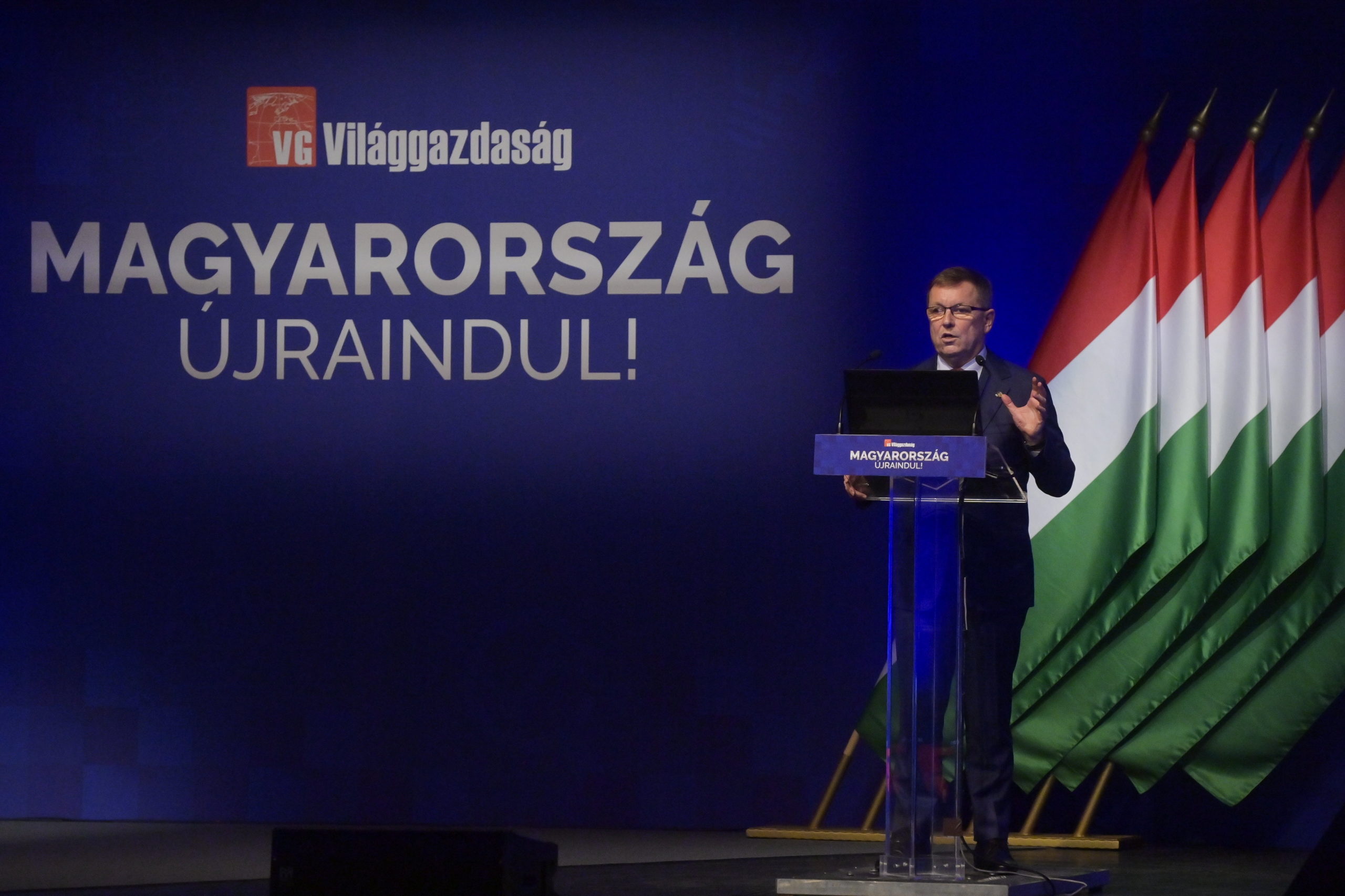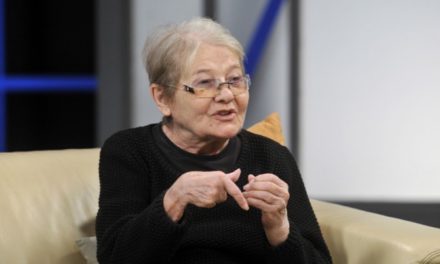The monetary policy turnaround can even begin as early as June, if the members of the monetary council see that the interest rate hike can take place as early as this month, said György Matolcsy, president of the Magyar Nemzeti Bank (MNB), at the conference organized by the business daily Világgazdaság on the relaunch of Hungary.
He pointed out that a sustained increase in inflation would threaten the recovery, the Hungarian economy would be unable to withstand an interest rate hike, and the danger of inflation would also make it mandatory. He noted that next year's projected Hungarian deficit of 5.9 percent would be the third highest in the European Union. It is not lucky to get ahead in such a ranking, he added.
The governor of the central bank said that the restoration of the financial balance could begin next year. Prior to this, even in the third quarter, the conditions of 2019 can be restored, and the pre-crisis GDP level can be reached. According to György Matolcsy, the current crisis differs from the 2008 crisis in that the recovery is now much faster. Although there are differences between the countries, we can talk about a period of 1.5 years, as opposed to after the 2008 crisis, when it took years to get back on our feet.
The governor of the central bank explained that in the current crisis, Hungarian crisis management was also very successful in international comparison, because the MNB used the results achieved since 2013. Now - explained György Matolcsy - the restoration of balance must be achieved in three areas.
These are: the labor market balance with full employment, the financial balance with the termination of the moratorium and the restoration of the balance of public finances
, but maintaining the necessary safety net, as well as ensuring price stability. György Matolcsy reminded that the central bank has a legal obligation to keep inflation at an appropriate level, and the institution is doing so so that the rate of inflation almost stabilizes at around 3 percent after the crisis management and restart.
Matolcsy called the temporarily increased inflation inherent in the post-crisis restart. At the end of his presentation, the governor of the central bank also spoke about the need to speed up digitization, in the spirit of which the central bank is also turning to digital money.
The performance of the Hungarian economy may already exceed the level before the coronavirus crisis in the summer months, said Finance Minister Mihály Varga.
He said there was a global downturn in 2020. It is as if the Union is lagging behind in the restart, he added. Mihály Varga put the Hungarian stimulus package at 30 percent of the budget. A total of nearly HUF 14,000 billion was allocated to fight the crisis. The resilience of the Hungarian economy has strengthened over the past 10 years, so we will return to the pre-crisis level sooner, he said.
The finance minister announced that the restart has already begun. Previously, we set the first half of 2022 to reach the 2019 level, but now we have a good chance to reach it in the second half of this year.
Mihály Varga also spoke about the need to take into account certain braking factors. Among them, he mentioned that tourism from abroad can start more slowly due to the different vaccination levels of the countries. He also mentioned that it is necessary to find a solution to ensure the right workforce.
affects 45,000-50,000 businesses and approximately 1 million individuals, must be dealt with Mihály Varga also spoke about the fact that inflation is indeed higher, but this is a one-time phenomenon. He is confident that this extremely high level of inflation will return to where it was before and stay in the 3 percent range.
László Parragh, the president of the Hungarian Chamber of Commerce and Industry, said at the conference organized by the business daily Világgazdaság on the restart of Hungary, that the government incorporated several of the chamber's proposals during the crisis management. The economic recovery can also be clearly seen from the fact that businesses are experiencing less and less uncertainty. The president of MKIK specifically highlighted that 400,000 social enterprises were notified to receive the vaccine.
László Parragh also spoke about the fact that after 2017 the growth of the Hungarian economy was significantly faster than that of Germany. In the past period, economic expectations have increased significantly at home. The trend of uncertainty has significantly decreased among businesses, he added.
MKIK is launching a restart program through the Széchenyi Card Program. More constructions will be available in the coming months. The leasing scheme for the purchase of new equipment and the self-reliance supplement loan will start in September. All this could mean HUF 500 billion, he added.
László Parragh also said that if we want to get out of the crisis, then the
minimum wage level must also be changed.
Following Origo













